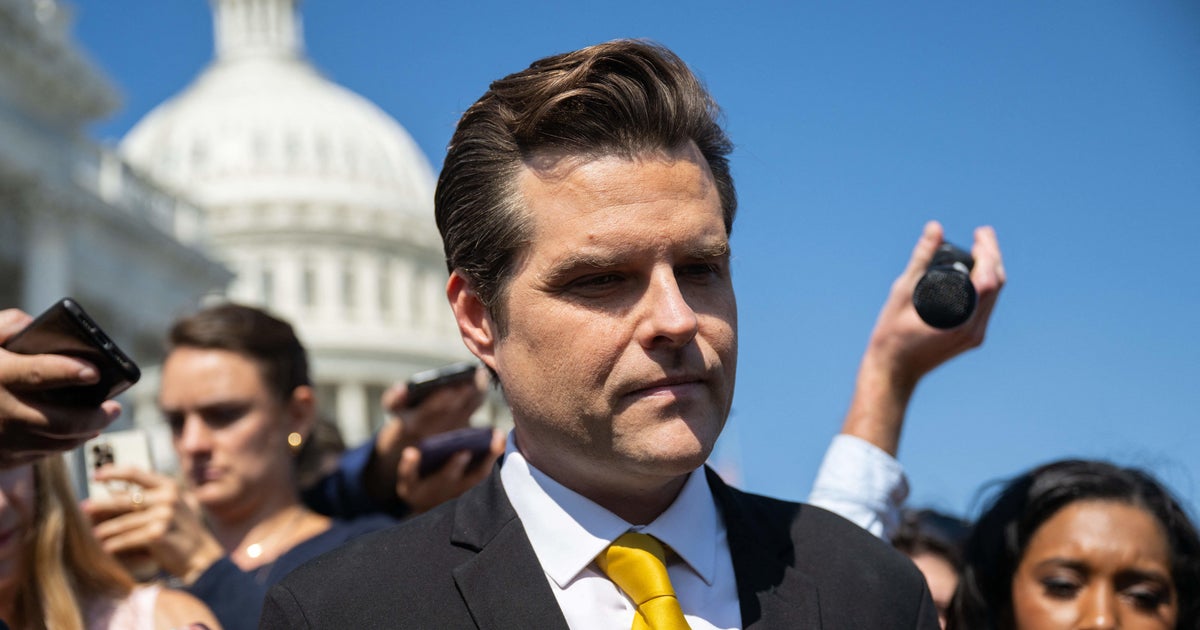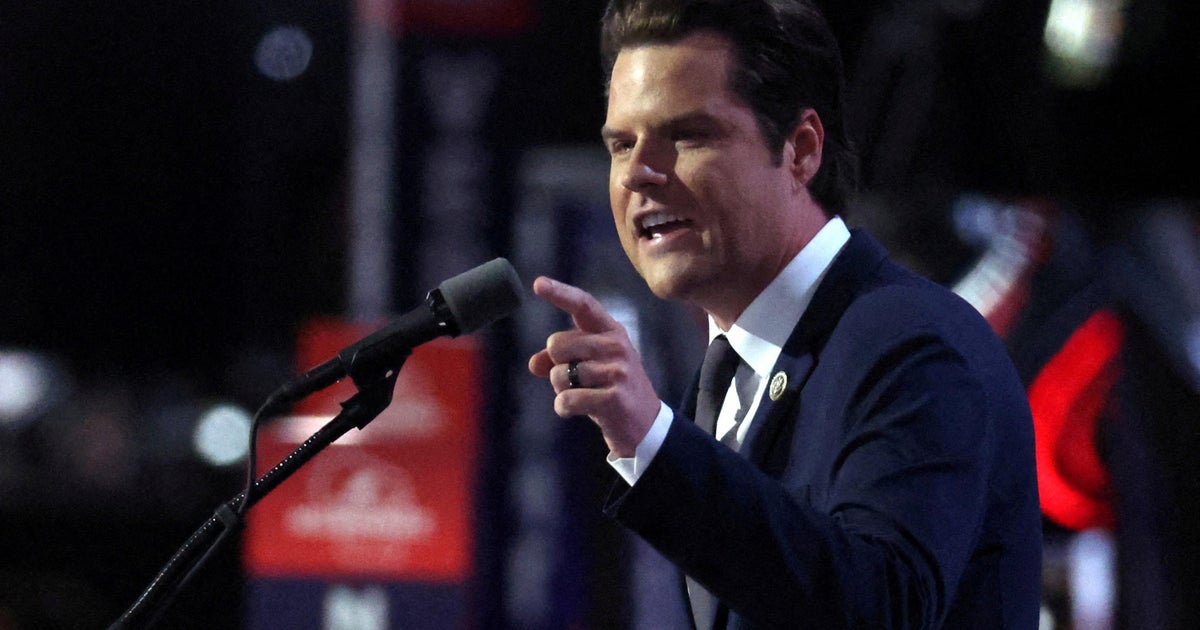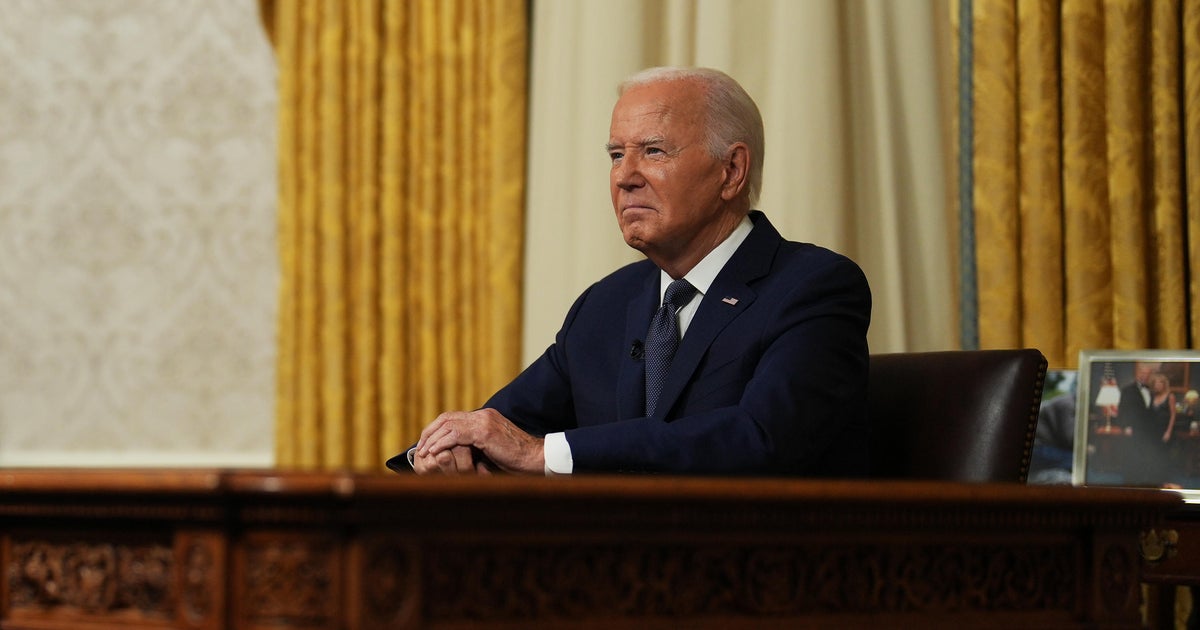Mueller report: Congress could make "obstruction-of-justice statutes applicable" to Trump
The opening of special counsel Robert Mueller's report on whether the president committed any obstruction-of-justice offenses says that the report would not make a "traditional prosecutorial judgment," given that the Justice Department's Office of Legal Counsel has issued an opinion that indicting or prosecuting a sitting president would undermine the president's capacity to carry out the duties of his or her office, in violation of the Constitution's separation of powers.
However, the special counsel explicitly did not clear the president of obstruction of justice. "If we had confidence after a thorough investigation of the facts that the President clearly did not commit obstruction of justice, we would so state," Mueller wrote.
So, while he rules out prosecuting the president, the special counsel suggests it is within the power of Congress to look into whether the president obstructed justice.
Mueller concluded that Congress could make "obstruction-of-justice statutes applicable to corruptly motivated official acts of the president" without infringing on President Trump's constitutional rights, according to the redacted report released by Attorney General William Barr Thursday.
The report says that "Congress can validly regulate the President's exercise of official duties to prohibit actions motivated by a corrupt intent to obstruct justice."
In its introduction, the report says the Constitution doesn't "immunize a president" against committing obstruction of justice through Article II powers, and it falls to Congress to evaluate and protect against acts of corruption and obstruction, "regardless of their source."
The special counsel's office said that the Supreme Court's separation-of-powers test applies to whether action by another branch of government interferes with a president's rights under Article II of the Constitution. The high court has ruled on separation of powers as regards the presidency in the past, for instance, stopping Congress from impinging on the president's ability to nominate judges or from the exercise of "foreign and military affairs for which the president bears a unique responsibility."
But the report concludes that Congress has the power to prohibit actions such as influencing witness testimony or fabricating evidence "because those prohibitions raise no separation-of-powers questions."
"Congress has the authority to prohibit the corrupt use of 'anything of value' to influence the testimony of another person in a judicial, congressional, or agency proceeding...which would include the offer or promise of a pardon to induce a person to testify falsely or not to testify at all," the report said.
Mueller argues that Congress would not be interfering in the president's ability to carry out the duties of his office because it would only be stopping the president from "acting to obstruct official proceedings for the improper purpose of protecting his own interests."
"The proper supervision of criminal law," Mueller writes, "does not demand freedom for the President to act with the intention of shielding himself from criminal punishment, avoiding financial liability or preventing personal embarrassment."
"Applying obstruction-of-justice statutes to presidential conduct that does not involve the President's conduct of office-such as influencing the testimony of witnesses-is constitutionally unproblematic," the report said, adding that Mr. Trump "has no more right than other citizens to impede official proceedings by corruptly influencing witness testimony."
The report also discusses Congress' power to investigate the president in a section justifying why the special counsel's investigation was legally permissible.
Mr. Trump has not ruled out a pardon for his former campaign chairman, Paul Manafort, who was indicted and found guilty as part of the special counsel's investigation. While the Republican-controlled Senate may not be interested in continuing to investigate Mr. Trump, the Democratic-led House could continue probing whether Mr. Trump influenced testimony.




